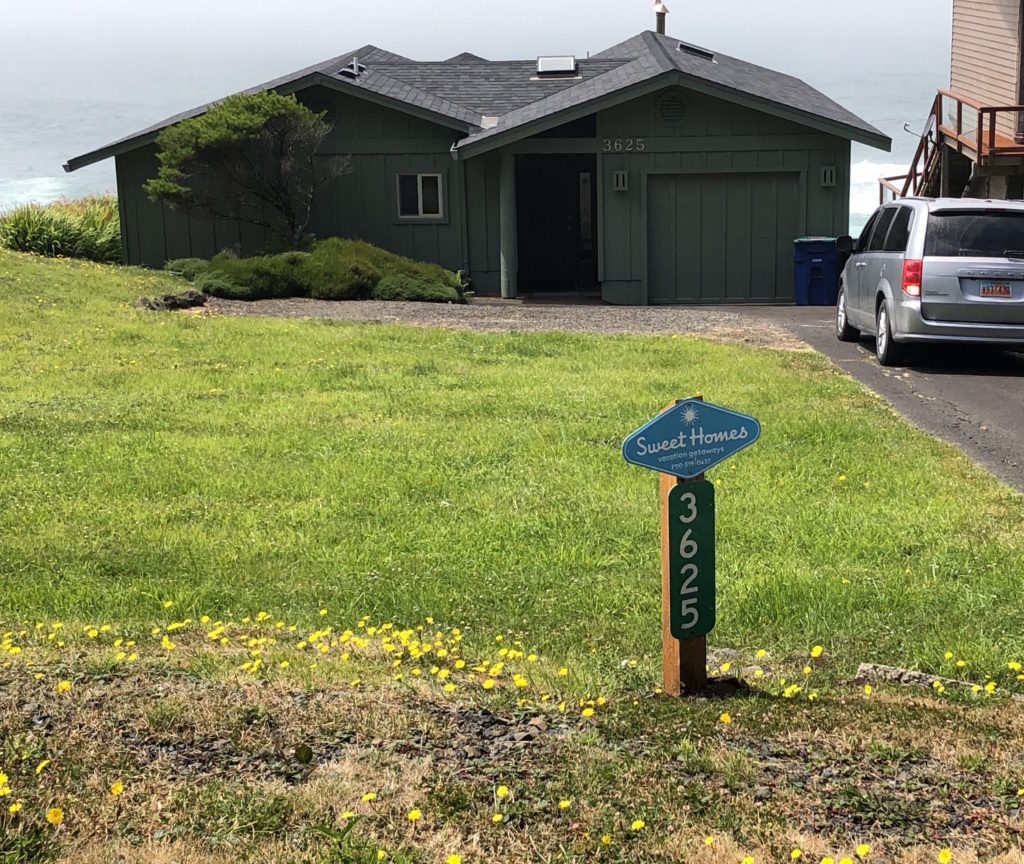
By QUINTON SMITH/YachatsNews.com
Opponents and proponents of vacation rentals in unincorporated Lincoln County squared off again Wednesday night in a public workshop, arguing that renting houses to visitors is either a vital element in the region’s economy or a blight on neighborhoods.
It was the first workshop since Lincoln County staff rolled out new ideas for regulating 566 licensed rentals in unincorporated areas.
Nearly 100 people signed up to testify during the online meeting, and for nearly three hours rental managers, rental owners and neighborhood advocates made their cases – and there was little middle ground. But many of the people who testified had done so before and few brought up new ideas or responses to the county’s revised proposals.
Rental owners argued that allowing visitors to use their second homes was the only way they could afford to own the property, where many hoped to one day retire. Others said they were good neighbors and the county was infringing on their rights.
“Don’t take away property rights of everyone because of a few problems,” said Gary Bradley of Seal Rock.
Rental managers stressed the importance of vacation rentals to the Lincoln County economy, employing thousands and bringing millions in tourist dollars to shops, restaurants and caretakers.
“Some squeaking wheels are trying to put a massive wrench in the economy … while hamstringing the homeowner’s ability to make money,” said Casey Hansen, a manager for TurnKey Vacation Rentals.
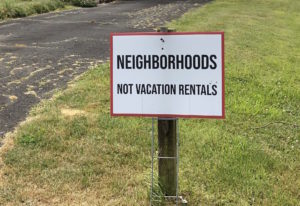
But residents opposed to short-term vacation rentals told stories of overcrowded homes, speeders on residential streets, out of control parties and the constant churn of visitors.
“It’s been a nightmare,” said Richard Reagan, who owns a home in the popular Bella Beach development south of Lincoln City. “I’m ready to get out of here.”
Lincoln County staff and commissioners have been wrestling with a rapid increase in vacation rentals for almost two years, a process hampered by their attention being diverted for much of the past 12 months responding to the coronavirus pandemic and last September’s wildfires in Otis that wiped out 300 homes. Licensed rentals in unincorporated areas mushroomed from about 200 in 2018 to more than 600 last year as coastal cities tightened or capped their licenses, sending buyers to areas with fewer restrictions.
Seeking feedback on specifics
Wednesday night’s workshop was designed to get specific feedback on four areas of proposed regulations that county staff has developed the past 18 months and hopes to have ready for commissioners to discuss in the next few weeks.
The staff proposals include:
- Some kind of countywide cap on the number of licenses or caps in seven geographic zones;
- Reducing occupancy limits from three people per bedroom plus an additional two people, to just two people per bedroom. Also, during the day, only two additional people would be allowed to visit, a regulation designed to prevent large gatherings;
- Require vacation rentals on septic tanks to have it evaluated yearly for its condition and capacity. The inspection would “establish a ceiling capacity on the number of persons who can occupy the property, no matter what is otherwise authorized under the code.”
- A quasi-judicial process to hold hearings on possible violations, allowing either a neighbor or the sheriff’s code enforcement deputy to file complaints. If the hearings officer determines there has been a violation of vacation rental rules, it would count as one “strike” toward a three-strike limit before the homeowner’s license is revoked.
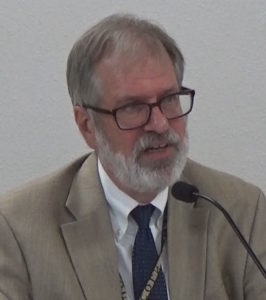
In outlining the proposed regulations Wednesday night, county counsel Wayne Belmont did not go into detail on how commissioners might establish a license limit, or how staff had developed a map of seven zones where there would be a license limit. He also did not explain the newly proposed hearings officer process.
Belmont did mention that staff was considering limits on off-street parking and establishing separate rules for rental management companies to better track code compliance and lodging taxes.
Two opposing groups that have been testifying regularly on the county’s regulations had urged their supporters to testify or watch the proceedings on the county’s YouTube channel Wednesday night. One is Via Oregon, a coalition of vacation rental managers and owners opposed to most of the proposals. The other is 15neighorhoods, which wants vacation rentals banned in single-family neighborhoods and has been collecting signatures to put the issue to a countywide vote.
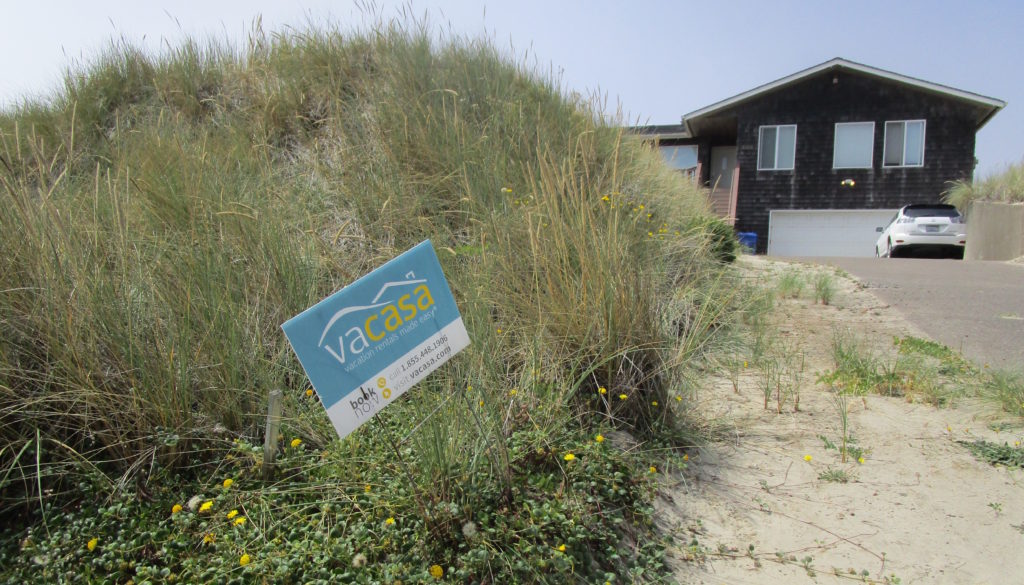
Owners emphasize economic impact
Although commissioners last month urged opponents of the proposed regulations not to focus on their economic impact, few either heard or heeded that advice. Manager after manager and owner after owner said vacation rentals were vital to Lincoln County’s economy, their retirement plans, and how much they had spent locally making improvements.
Managers said lowering occupancy rates and limiting licenses would push visitors elsewhere.
“We want to continue to grow and invest in the community,” said Aaron Linfoot of Lincoln City-based Meredith Lodging, which has 200 employees. “Guests bring tourist dollars to local businesses and provide tax revenue to the county.”
Danika Goulet said she and her husband bought a house last year in Gleneden Beach that is licensed for 13 people. The proposed occupancy limits would limit the number of guests to eight and hamper their ability to afford it, she said.
“We feel we have been good neighbors and addressed any concerns,” she said.
Gary Lahman said he bought a house north of Yachats and plans to retire there, but uses it as a vacation rental “in order to make it pencil out” financially.
“We’re nicely regulated right now and see great problems if we are over-regulated,” he said.
Other points by owners or managers included:
- If the county is going to require yearly inspections of a vacation rental’s septic systems it should apply to all homes, not just short-term rentals.
- Better analyze complaint data in order to see who and where complaints are coming from, and penalize neighbors who make repeated, erroneous complaints;
- Treat vacation rentals in rural areas separated by large lots differently than dense, beachfront neighborhoods;
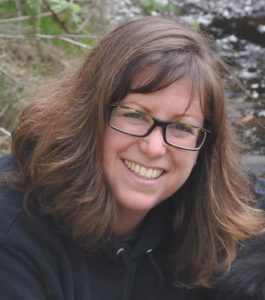
Jamie Michel, vice president of Sweet Homes Vacation Getaways and co-founder of Via Oregon, may have been the only voice Wednesday night trying to find a middle ground. Because the issues are so technical and far-reaching, she urged the county to establish a “work group” with representatives of all sides to dig deeper and suggest solutions. She also urged the county set up a mediation program.
“We have a neighbor-to-neighbor problem not a short-term rental problem,” Michel said.
But her case was not helped by Via Oregon co-founder Lauri Hines, who in a public “chat room” visible to all during the workshop broadcast, criticized opponents for testifying.
“The owners who are complaining about STRs bought in Bella Beach and Bayshore communities that were built as second home/vacation rental communities,” Hines wrote. “Why are they whining now?”
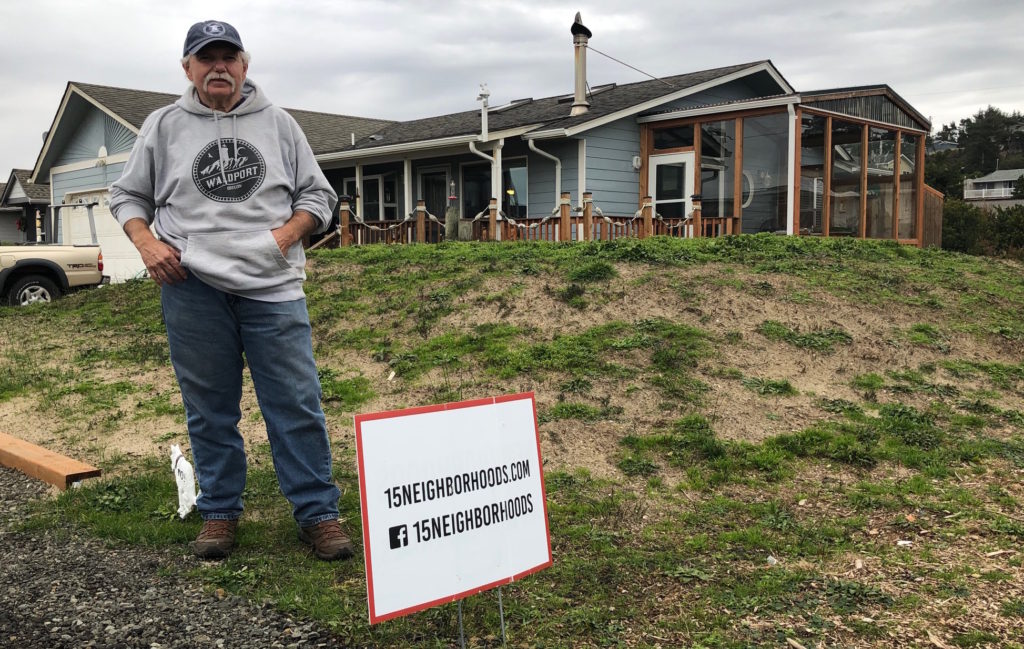
Opponents want neighborhoods protected
But several residents of the Bayshore area on the north edge of the Alsea Bay, testified how more than 100 vacation rentals in their 700-home community had changed the character of the neighborhood.
“I have been flabbergasted by the loss of community by these short-term rentals,” said Jill Stone, who lives in Bayshore. “We don’t put motels in the middle of neighborhoods, and that’s what’s happened. I am surprised how quickly the neighborhood has degraded.”
Jim Kalby, who lives in South Beach, said short-term rentals are really businesses that have taken root in single-family neighborhoods.
“Why does someone’s right to make money outweigh my rights in a single-family neighborhood?” he asked.
Stephan Potts echoed that argument, saying that the county’s regulations should not be weakened just so a vacation rental owner or manager can make money.
“People are making money at the expense of single-family neighborhoods,” he said.
Several people said they had no problem with vacation rentals, so long as they were in commercial or tourist zones, not residential neighborhoods, and urged the county to try to find a way to use zoning rules.
That was reinforced by Monica Kirk, one of the leaders of the 15neighborhoods group.
She said the number of vacation rentals in unincorporated areas of Lincoln County exploded “into the wild West” after cities began clamping down on them, either limiting their numbers or their location.
“We’re not opposed to short-term rentals,” Kirk said. “Our movement started because they’re in neighborhoods.”



The reason so many speakers commented on the economy is that they refuse to ignore the elephant in the room.
Twenty percent of the Lincoln County workforce is directly attributed to the STR economy.
Lincoln County experienced the highest unemployment of any county in Oregon after short term rentals were shut down last year at the outset of the COVID crisis, and Oregon experienced the third highest loss of tax revenues of any state in the country, after Hawaii and Alaska, during the shut down.
Why? Tourism.
ViIA Oregon supports fair enforcement of STRs and a community-based approach to addressing the issue of short term rentals as our co-founder Jamie Michel has stated.
We believe in a work group approach that allows all stakeholders to confer on best practices. VIA Oregon has reached out to 15Neighborhoods to see if there are some common grounds where we can come together. VIA Oregon encourages the Lincoln County commissioners to provide the community an opportunity to collaborate on this issue before adopting regulations that may not benefit any of the stakeholders.
Speaking strictly for myself, I neither apologize or regret stating the obvious regarding comments on master planned communities designed to serve as STRs.
When you buy a home in a master planned community designed for short term rentals, you should not be surprised when that is the result.
It would be the same as buying a home in South Shore or Little Whale Cove and complaining when you cannot do short term rentals. The buyer must exercise due diligence.
Similarly, if you buy a beachfront home in a tourist community, you should expect there will be visitors unless you buy in a planned community that does not allow them.
This is not a new phenomenon. Visitors have been hosted in private homes in Lincoln County since the 1800s.
Our economy is tourism driven, and the nature of guest lodging has vastly changed over the last 10 years. Families who want to visit the Oregon coast do not wish to stay in hotels. They prefer to stay in private accommodations where they can socially distance.
Lincoln County is at a crossroads. Do we want to enjoy the revenues that come from short-term visitors and the resulting amenities that we all enjoy, or do we want to shut the gates behind us?
The choice is up to you.
Lauri Hines owns a vacation rental business, so take her opinions as skewed. Her statement in her above comments is ridiculous about why families visit “Families who want to visit the Oregon coast do not wish to stay in hotels. They prefer to stay in private accommodations where they can socially distance.” In our neighborhood in Yachats the families party, put excessive garbage out, park the overflow cars on the city right of way and in yards. All they do is a make a nuisance of themselves. We do not enjoy short term rentals in our neighborhood.